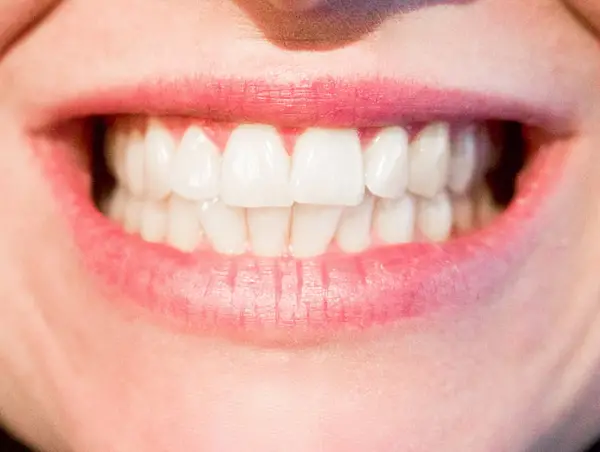
Dentures: A Solution For Missing Teeth
In an ideal world, we'd never experience oral health problems and take our natural teeth to our graves. Sadly, dental problems affect most of us, eliminating that hope. Oral pain, tooth loss, cavities, and decay may become so severe that tooth extraction is the only solution. Many people replace their missing teeth with dentures. Around 20% of people over age 65 use dentures to replace missing teeth and restore their confidence and lost functionality.
Eating without teeth is difficult. It's not easy to smile or like the person you see staring back at you in the mirror when you have a toothless grin. Dentures come to the rescue, providing a solution that helps people with missing teeth eat the food they love, smile confidently, and enjoy good overall health
What are Dentures?
Dentures are removable appliances that replace missing teeth. A dentist takes a mold of the patient's mouth to create a set of dentures unique to their needs. Full and partial dentures are available. Full dentures aid people who are missing all their teeth while partials work for people missing one or two teeth. Partials attach to the remaining teeth using a metal clip.
Signs You Might Need Dentures
If you're wondering if dentures can benefit your smile and overall health, schedule an appointment with your dentist. A dental professional can examine your mouth, take X-rays, and better determine the oral health solutions best for your situation.
In the meantime, signs that suggest you might need dentures include:
- You're missing more than one tooth and want an aesthetic solution that helps you smile with confidence
- Your current teeth cause constant pain
- You struggle to chew or experience discomfort while eating
- Teeth that shift in place or are loose
- You suffer from gum disease
- Your teeth are discolored or in poor condition
- You are self-conscious about your smile
Misconceptions About Dentures
Sure, keeping your natural teeth is ideal, but not always possible. Even people who take the very best care of their teeth may find themselves with tooth problems and concerns like tooth loss.
Myths and misconceptions about dentures exist. We're here to bust the lies and give you the truth.
Common misconceptions include:
- You'll Never Eat Again: Some foods may be off-limits for denture-wearers, but most are not. It can take practice to learn how to chew wearing dentures. When this time passes, expect to eat most of the same foods you always have.
- Dentures Look Unnatural: Other people will say that dentures look unnatural and that spotting someone wearing them is easy. We beg to differ. Quality dental experts create dentures that mimic the look of natural teeth.
- Dentures Are Uncomfortable: Perhaps the dentures your parents and grandparents wore were uncomfortable and difficult to wear, but modern dentures are designed for aesthetics and comfort. Put this worry behind you!
Do not allow tooth loss or oral health problems to persist because you believe the many myths and misconceptions about dentures. A visit to the dental professional can change your life and the way you smile.
How Much Do Dentures Cost?
The cost of dentures varies widely based on numerous factors, like the dental office you visit, the type of dentures, style of dentures, location, dental insurance coverage, and more.
Typical prices for a full set of dentures (upper and lower) range from $1,000 to $8,000. Partial dentures cost an average price between $500 - $2,000.
Consider Dental Implants
Dental implants are a replacement for missing teeth and an alternative to dentures. Implants cannot be removed from your mouth; they are attached to the gums using metal screws. They look and feel more like real teeth, giving wearers less worry and even more confidence.
Dental implants can last 25 years or longer when properly cared for.
Implants are more expensive than dentures, and can cost five figures or more, money you'll fork over out-of-pocket. Dental insurance typically doesn't cover even a small portion of the cost of dental implants, as they are considered cosmetic procedures.
Dentures FAQ
- How long does it take to adjust to wearing dentures? The adjustment period new denture wearers need to adjust varies from person to person. Typically, people adjust to wearing dentures within a few weeks to a couple of months. Talk to your dentist if you still have trouble adjusting after this time.
- What type of materials are dentures made from? Dentures can be made from a few different materials. Acrylic resin is the most common material. Other materials include composite resin and metal.
- How long do dentures last? The length of time dentures last depends on various factors, including how well they are cared for, the material, and the type of denture. With proper care, expect them to last between 5 and 10 years.
- How do I care for my dentures? Take care of dentures by removing them at night before bed and placing them in water and a denture cleansing agent. Use a soft-bristle brush to remove discolorations and debris. Visit your dentist for realignments as necessary.
- Will insurance pay for the cost of dentures? Most insurance coverages cover the cost of full and partial dentures up to 100%, depending on the plan. Dental implants are considered a cosmetic procedure and typically not covered by insurance plans. Talk to your insurance agent/provider before scheduling your first dental consultation.
Love Your Smile Again
Dentures are not an oral solution most people hoped they'd ever need, but life happens. Thousands of people use dentures and knowing the solution exists comforts most people. Why spend your senior years worried about missing teeth when dentures resolve the problem and benefit your overall well-being? Dentures give you back the confident smile and functionality that you lost. Talk to your dentist and learn how dentures can benefit your life.